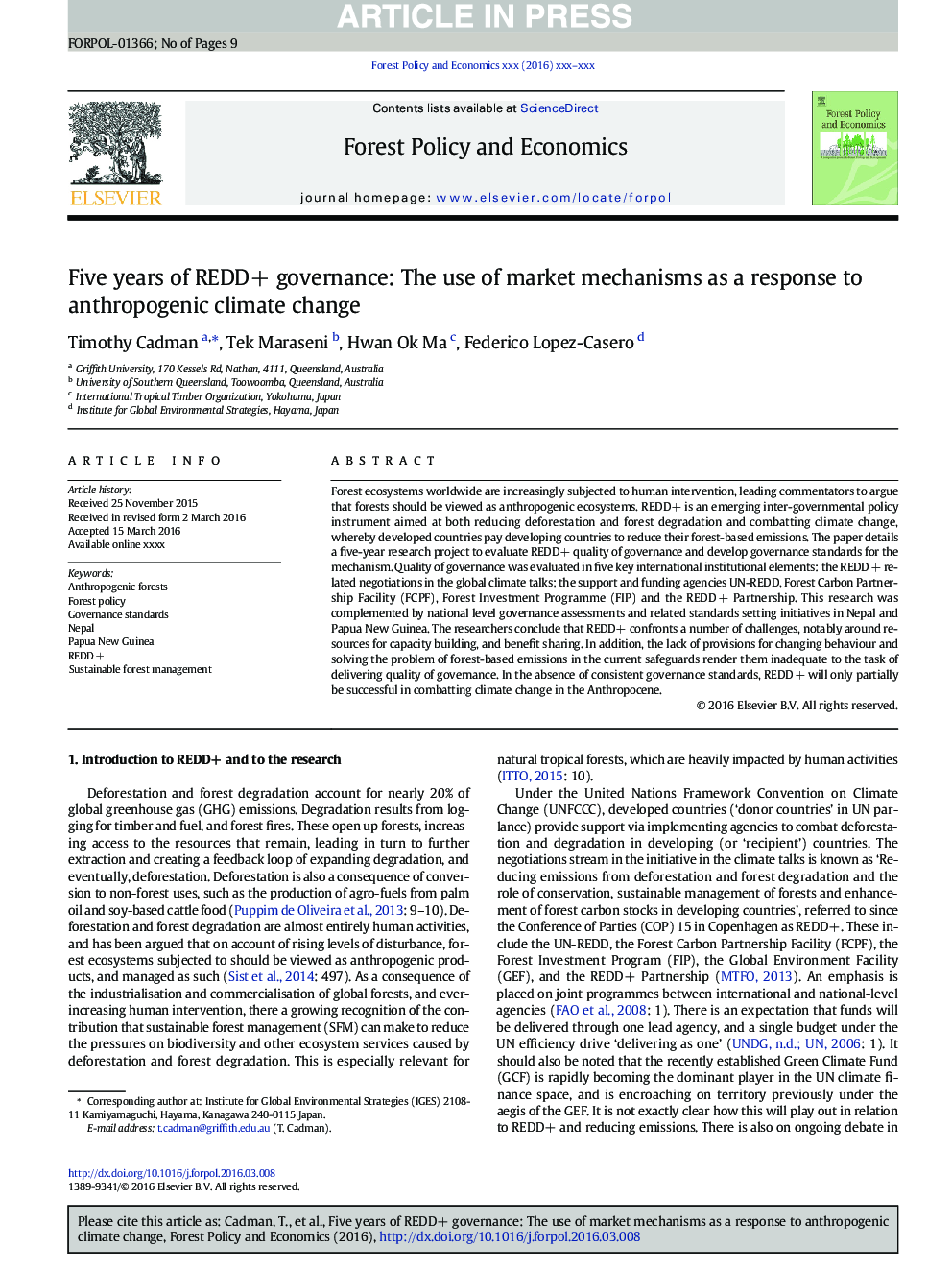| Article ID | Journal | Published Year | Pages | File Type |
|---|---|---|---|---|
| 4759788 | Forest Policy and Economics | 2017 | 9 Pages |
Abstract
Forest ecosystems worldwide are increasingly subjected to human intervention, leading commentators to argue that forests should be viewed as anthropogenic ecosystems. REDD+ is an emerging inter-governmental policy instrument aimed at both reducing deforestation and forest degradation and combatting climate change, whereby developed countries pay developing countries to reduce their forest-based emissions. The paper details a five-year research project to evaluate REDD+ quality of governance and develop governance standards for the mechanism. Quality of governance was evaluated in five key international institutional elements: the REDDÂ + related negotiations in the global climate talks; the support and funding agencies UN-REDD, Forest Carbon Partnership Facility (FCPF), Forest Investment Programme (FIP) and the REDDÂ + Partnership. This research was complemented by national level governance assessments and related standards setting initiatives in Nepal and Papua New Guinea. The researchers conclude that REDD+ confronts a number of challenges, notably around resources for capacity building, and benefit sharing. In addition, the lack of provisions for changing behaviour and solving the problem of forest-based emissions in the current safeguards render them inadequate to the task of delivering quality of governance. In the absence of consistent governance standards, REDDÂ + will only partially be successful in combatting climate change in the Anthropocene.
Related Topics
Life Sciences
Agricultural and Biological Sciences
Forestry
Authors
Timothy Cadman, Tek Maraseni, Hwan Ok Ma, Federico Lopez-Casero,
